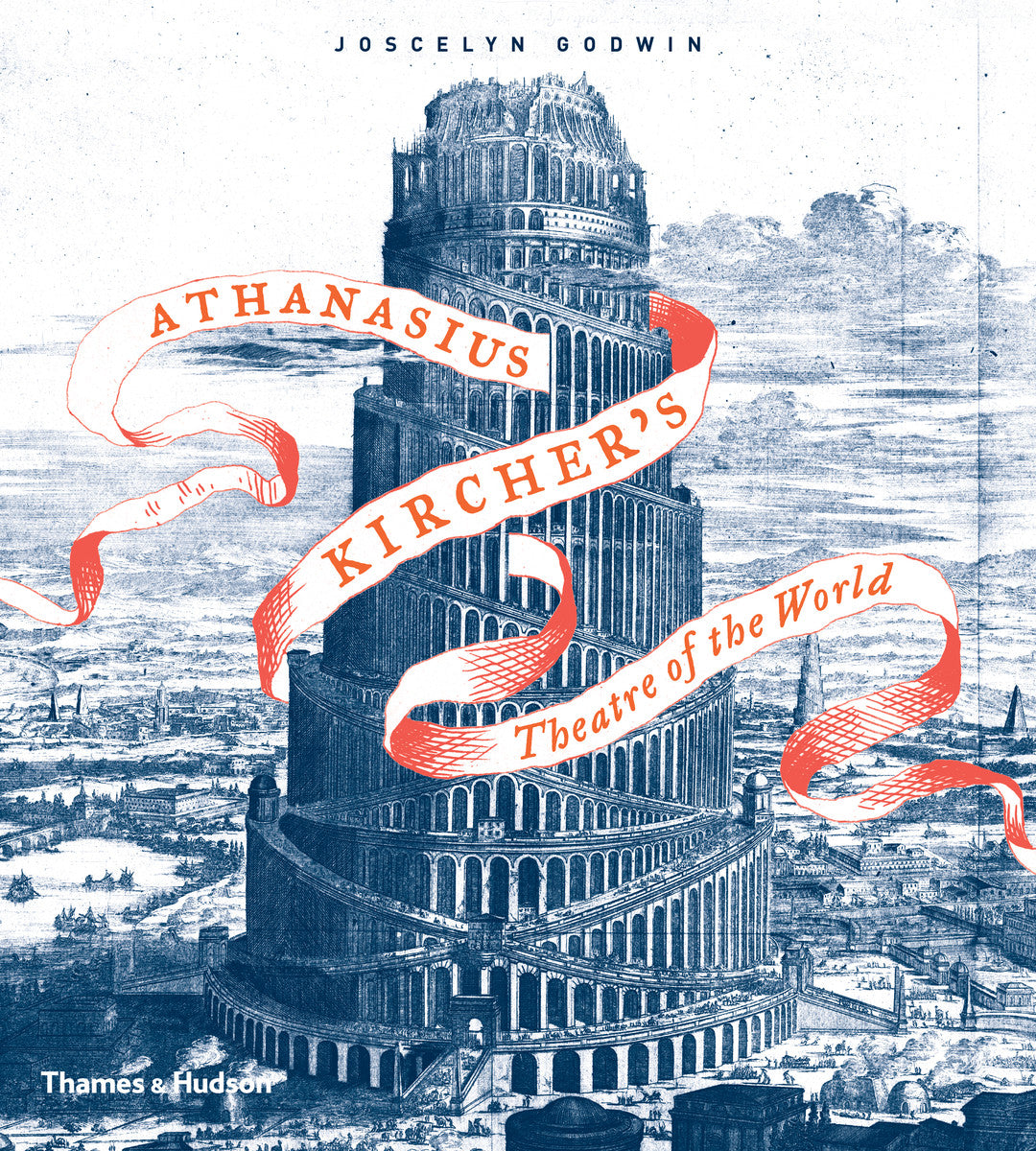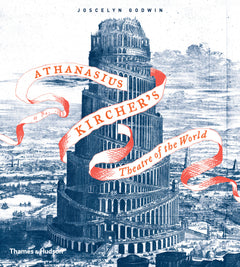Access Denied
IMPORTANT! If you’re a store owner, please make sure you have Customer accounts enabled in your Store Admin, as you have customer based locks set up with EasyLockdown app. Enable Customer Accounts

Athanasius Kircher's Theatre of the World
Out of Stock- Regular price
- $65.99
- Sale price
- $65.99
- Regular price
-
- Unit price
- / per
The fascinating celebration of a man who dominated the intellectual world of the 17th century
In the 17th century Athanasius Kircher was a phenomenon. In the 21st he has become a cult. By profession a Jesuit priest, he made himself an authority on almost every subject under the sun. His most vaunted achievement was to translate the Egyptian hieroglyphs, and though he got them wrong his work marked the beginning of Egyptology.
Kircher was the first to map ocean currents; the first to offer a comprehensive theory of vulcanism; the first to compile an encyclopaedia on China, a dictionary of Coptic, a book dedicated solely to acoustics; the first to construct a machine for coding messages and another for composing music. Other interests included biblical archaeology and Christian and non-Christian history, the machinery of illusionism, the Kabbalah, the planets and the biology of animals and plants. His museum in Rome was among the most famous 'cabinets of curiosities', visited by everybody in the intellectual world.
In recent years the study of this fascinating man and his works has become an industry. His peculiar mind, his instinct for mystical meanings and the occult, and his talent for finding visual equivalents for his theories continue to intrigue. But while every other aspect of Kircher's thought has been exhaustively analysed, his prolific illustrations have been left largely unexplained. Kircher had an extraordinary imagination, comparable to the most avant-garde modern artist, even (or often especially) when he was wrong.
The present book fills that gap. It proves how much more we still have to learn from this eccentric genius. Joscelyn Godwin's unrivalled mastery of his subject gives a sure underpinning to the presentation of hundreds of engravings through which Kircher prepared his ideas and through which we can see the mind of one of the most memorable thinkers who has ever lived.
Kircher was the first to map ocean currents; the first to offer a comprehensive theory of vulcanism; the first to compile an encyclopaedia on China, a dictionary of Coptic, a book dedicated solely to acoustics; the first to construct a machine for coding messages and another for composing music. Other interests included biblical archaeology and Christian and non-Christian history, the machinery of illusionism, the Kabbalah, the planets and the biology of animals and plants. His museum in Rome was among the most famous 'cabinets of curiosities', visited by everybody in the intellectual world.
In recent years the study of this fascinating man and his works has become an industry. His peculiar mind, his instinct for mystical meanings and the occult, and his talent for finding visual equivalents for his theories continue to intrigue. But while every other aspect of Kircher's thought has been exhaustively analysed, his prolific illustrations have been left largely unexplained. Kircher had an extraordinary imagination, comparable to the most avant-garde modern artist, even (or often especially) when he was wrong.
The present book fills that gap. It proves how much more we still have to learn from this eccentric genius. Joscelyn Godwin's unrivalled mastery of his subject gives a sure underpinning to the presentation of hundreds of engravings through which Kircher prepared his ideas and through which we can see the mind of one of the most memorable thinkers who has ever lived.
Extent: 304 pp
Format: Paperback
Illustrations: With 410 illustrations
Publication date: 2015-02-01
Size: 27.7 x 25.3 cm
ISBN: 9780500291740

About the Author
Joscelyn Godwin is Professor of Music at Colgate University, New York state. He is the author of many books, including A Renaissance Man and the Quest for Lost Knowledge and The Pagan Dream of the Renaissance, both published by Thames & Hudson. He has also edited or translated nineteen other books, including the first complete English translation of the Hypnerotomachia Poliphili, published by Thames & Hudson in 1999.
You May Also Like
View more
This product currently has no recommended items.
Sign up to our Newsletter
Our weekly newsletter is a curated collection of interviews, articles, stunning images and books we think you’ll love. Sign up to get 20% off.
In accordance with our privacy policy, you may unsubscribe at any time.
Invalid password
Enter
- Choosing a selection results in a full page refresh.

